A New Ramadan
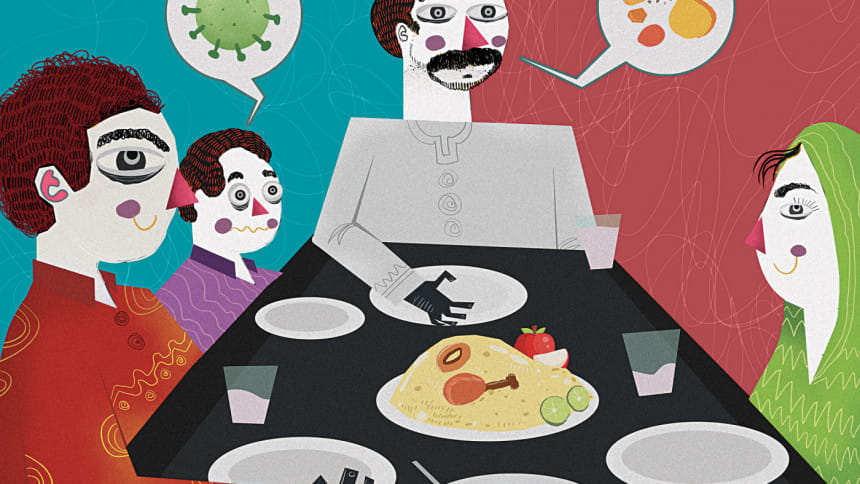
Covid-19 continues to haunt our daily lives. Different events and mass gatherings are either cancelled or have been postponed indefinitely due to the high risk posed by the coronavirus. The same, however, cannot be done in the case of the month of Ramadan, which is why we must take necessary measures and precautions as we enter the holy month.
But where do we start, and just how do we bring ourselves into accepting that Ramadan will not be the same this year?
A RATHER SILENT SEHRI?
Sehri during this Ramadan might feel empty to us as the musaharati (individual/s who walk around a community and call to wake the residents up in time for sehri) will be confined to their homes due to the lockdown. We, therefore, have to rely on our alarm clocks or family members to wake us up on time for sehri. Or, if the musaharati wants, and people allow it and even decide to join in, they can get a bit innovative and wake us up by calling aloud from their windows and balconies. Each of them will do their part from the safety of their own houses, and the localities will echo with their voices calling out to us for sehri, just like any other Ramadan.
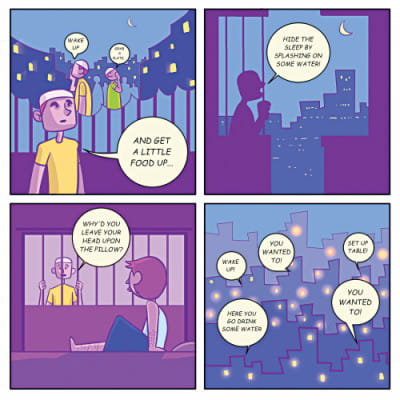
QUARANTINE DOES NOT JUSTIFY IDLING
Just because you'll be spending your Ramadan indoors doesn't mean that you can wake up late, and stay in bed all day. We should not let free time and leisure ruin the essence of Ramadan. Watching television series and sleeping away the day until Maghrib is not the way to go. Instead, you could read religious texts, practice supplications, and say your prayers. Encourage others to do the same. It is the one time of the year we have a chance to form a deeper bond with our faith, so make the best use of it. Step out of the room once in a while and spend some time with the family. Engage yourself in some new recipes and lend a hand in the kitchen. If it were an ordinary Ramadan, perhaps you'd still be at work or busy in some other way. Do whatever you can to help, and remember, idleness is not part of the Ramadan spirit.
GOING OUTSIDE ONLY IF YOU MUST
Step outdoors only for supplies or emergencies. If you are going out for supplies, you should consider purchasing in such quantities that would last you a week or more. The idea is to limit the number of trips you make outside your house. Be sure to put on your face mask, gloves, and any other form of personal protection gear you might have when you go outside.
EID SHOPPING ON HOLD
Shopping malls are all closed till further notice, and there's no way for you to go outside on a shopping spree till midnight. Hence, you're going to have to skip the usual Eid shopping for the time being. If you're really in need of something, you could consider getting it delivered to your place, depending on the availability of the item as well as delivery personnel. In addition, why not get in touch with your tailor? Their profession has been knocked hard in this pandemic, and so this Eid will count as a season of loss for them. Maybe you could lend a helping hand out for charity, and bring a smile to their faces. With the way things are looking, this Eid too will be very different than others.
IFTAR AND SEHRI DEALS ARE OFF THE TABLE
Iftar bazaars, such as those in Puran Dhaka are totally out of the scene. Thus, many won't be feasting exactly in the way they are used to. No jilapi or haleem for that matter, unless you know how to make them at home. This brings us to the fun iftar parties at our favourite restaurants and the super-combo-mega-awesome-all you can eat deals that follow. Sadly, this won't be possible by any means. Perhaps this time, you can try an online iftar party instead where you and your friends sit in front of the computer and have iftar together virtually on Discord, Messenger, or Zoom — a safe yet social gathering. Similarly, sehri will also be restricted to the confines of our home. Yes, we all will be missing the popular Nando's sehri offers and the crowds at biriyani places of the old town. Nonetheless, we can still stick to fancy food made at home. A little effort will go a long way. If you plan on ordering something from any restaurant, make an inquiry at least a day before to see if they can fit your order into their schedule.
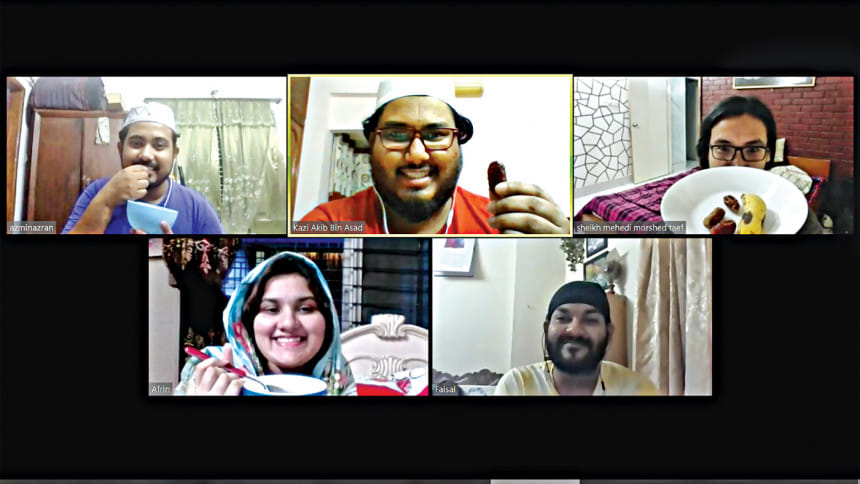
A LACK OF NEW PRE-IFTAR TV SHOWS
Newly produced television shows are likely to be scarce. If we're lucky, we might be able to binge on a handful of shows that met completion before the closure. As we sit to watch special iftar cooking shows with the family in the hours before Maghrib, these might ring a bell; expect a lot of reruns, probably from last year or the years before.
PRAYING INDOORS
As far as taraweeh prayers go, there's really no way these prayers can be performed in congregation at mosques while maintaining social distancing. The most plausible idea may just be to do this at home. It's possible that religious leaders might opt for digital delivery of live prayers or such sessions via live broadcasting. This way we all get to pray safely alone yet together.
CONNECTING WITH YOUR FAMILY
It has been over a month since we adopted the "stay home" lifestyle, and ever since then, people are having to spend more time with their family members and loved ones than ever before. Hence, it can be assumed that you are already working on your inter-family bonding skills. In case you are not, or think you can do better at it, Ramadan is the perfect time to do so. Have sehri and iftar together, help them out with the chores, and just talk to them about everything and more. Take this opportunity to connect with them in a way perhaps you usually don't in your busy lives.
STAYING IN TOUCH WITH YOUR FRIENDS
Don't let the shutdown come between your friendships, especially during Ramadan. As the emergency period keeps getting extended, it's easy to get frustrated. Under such circumstances, talking to your friends will help you get over this frustration, even if it's to a minimum extent. Give them a call, chat with them, or as suggested, have an online iftar party with them. Encourage each other to get through these difficult times, and whatever you do, don't lose your patience. After all, that's one of the many teachings of Ramadan.
HELPING THE LESS FORTUNATE
The Covid-19 crisis has taken a huge toll on the country's economy, and the people living below the poverty line are the ones who've been hit the hardest. As if life hadn't already been difficult for them, the pandemic has made it unbearable. The responsibility now falls on those with the means to help them get through these difficult times, and what better time to do so than Ramadan, where giving to the poor, and helping those in need is a sacred duty. Help whoever you can with money or ration. Avoid giving items like clothes, unless it is a specific requirement. Give, and encourage others to do the same. Given the food crisis the pandemic has brought about in the country among impoverished communities, we should make sure that donations reach those in need without causing any trouble or mismanagement in the way.
As we continue to fight and contain the coronavirus, we must simultaneously give our best effort to adjust to this new normal. This means we need to let go of certain habits and make room for new ones, keeping safety as our first priority. We must also engage in humanitarian work, now more than ever, if we're to have any chance of surviving this pandemic as a population.
Ramadan will be different this year — there is no doubt about it. However, if we can take the lessons of this holy month and realise the spirit of it, we might start to see the better of days to come.
Hiya is currently struggling to reach her book-reading goals. Find her at [email protected]
Faisal wants to be the very best, like no one ever was. To survive university is his real test, to graduate is his cause. Send him memes and motivation at [email protected]


 For all latest news, follow The Daily Star's Google News channel.
For all latest news, follow The Daily Star's Google News channel. 


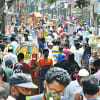




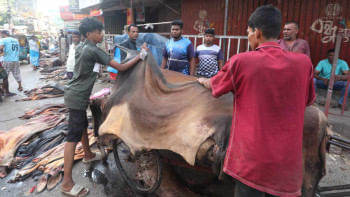
Comments